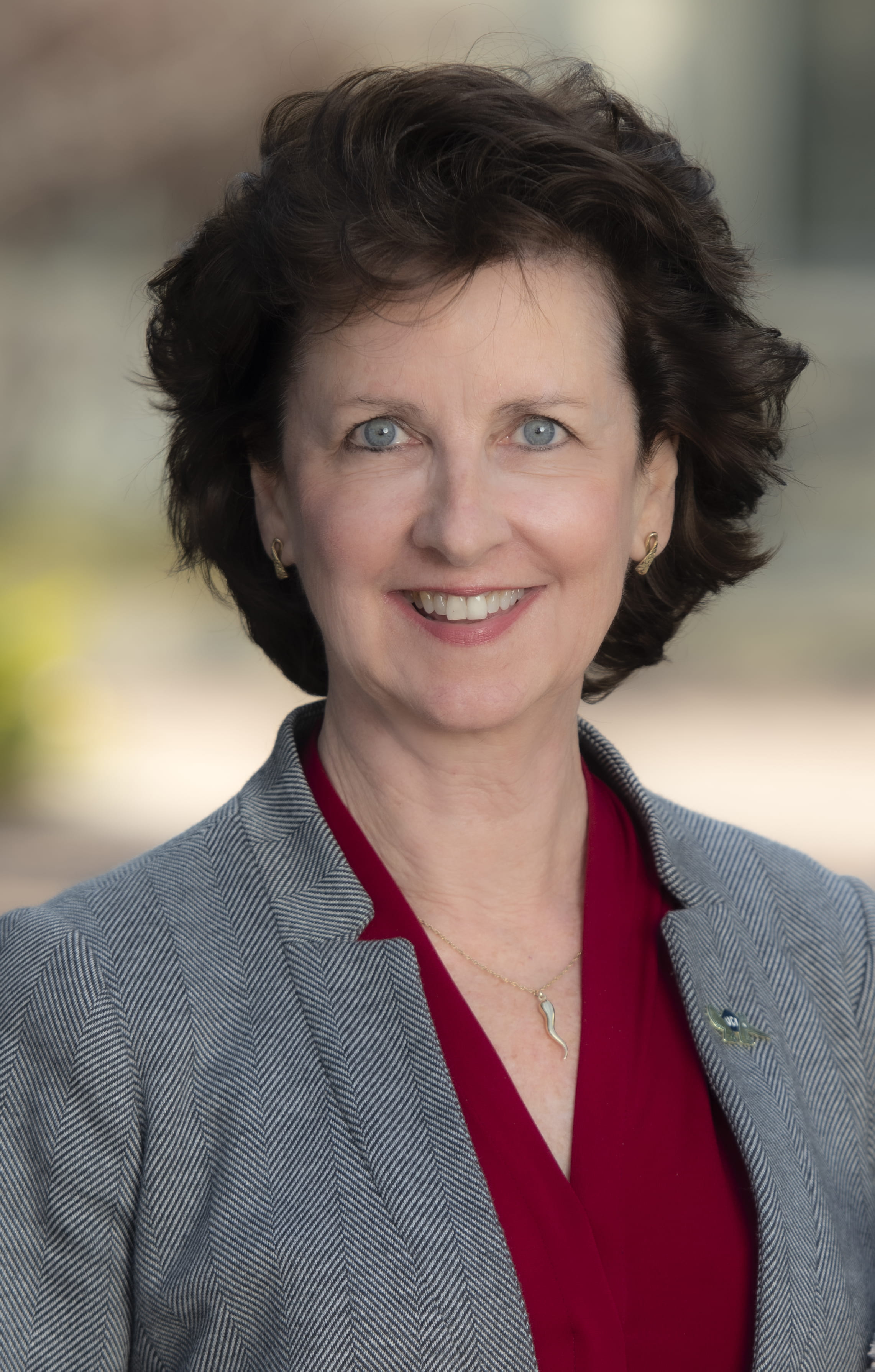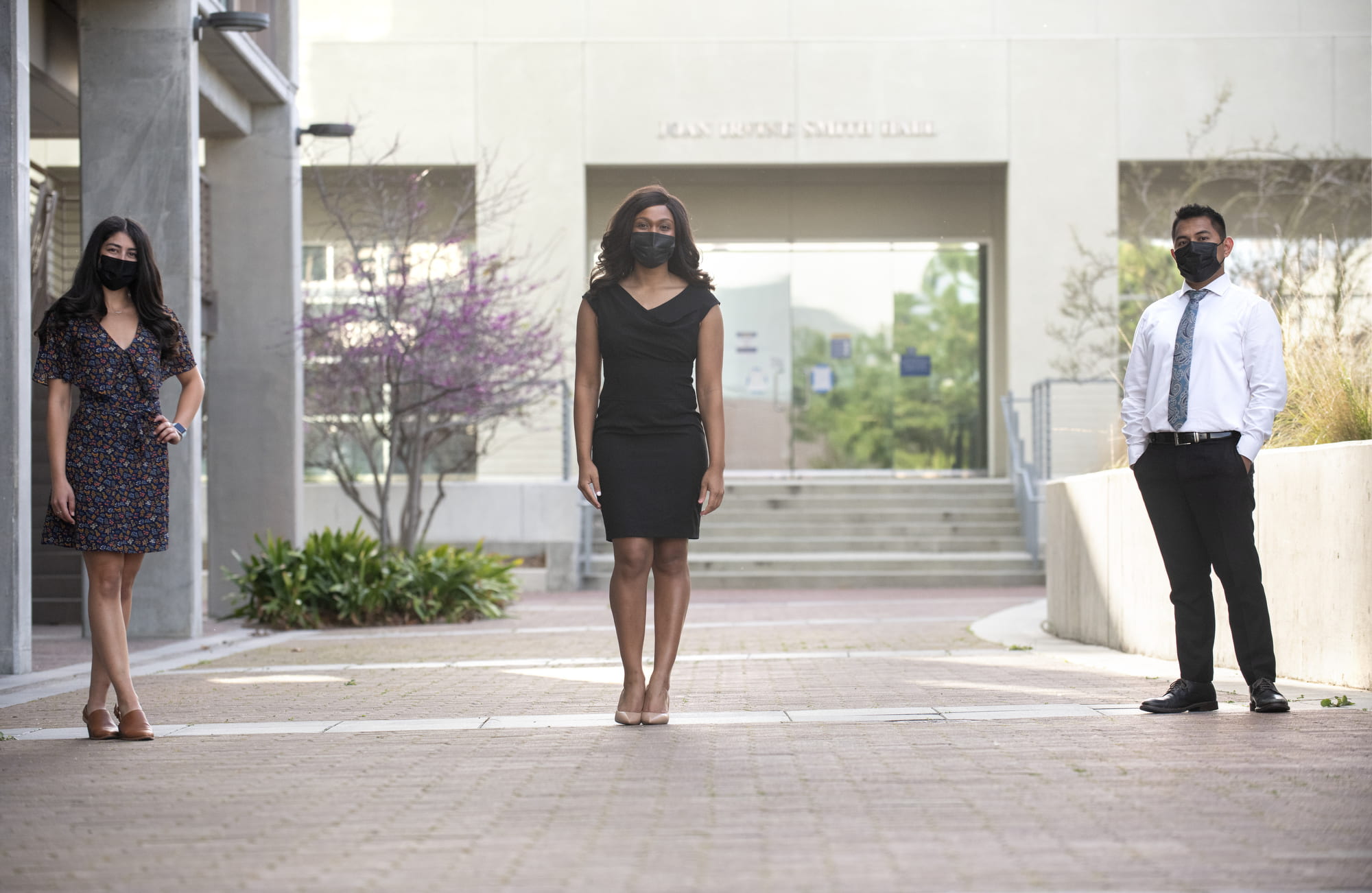Mind over matter
As part of its effort to provide scientifically studied forms of complementary healthcare, the Susan Samueli Center for Integrative Medicine this year began offering courses in mindfulness-based stress reduction. They have been wildly successful.
Artist Veronica Obermeyer was dogged by negative thoughts and mundane matters that limited her creativity. To overcome them, the Irvine resident turned to the popular book The Power of Now, which led her to UC Irvine’s Susan Samueli Center for Integrative Medicine.
As part of its effort to provide scientifically studied forms of complementary healthcare, the center this year began offering courses in mindfulness-based stress reduction.
Obermeyer, an art instructor at Saddleback College, enrolled in the fall session and participates in weekly classes that feature meditation, gentle yoga, deep relaxation, and discussions of such lifestyle factors as diet and exercise. The changes, she says, have been dramatic.
“I’m loving it,” says Obermeyer, 29. “When I finish class, I feel reborn and refreshed. It’s giving me much more focus and positive energy when I’m creating art, and I’ve been able to catch myself from stressing out over trivial things. It’s been very beneficial to me.”
Rooted in ancient Buddhist traditions, mindfulness-based stress reduction has been gaining greater acceptance in the medical community as an antidote for everything from stress, high blood pressure and headaches to depression and chronic pain. More than 18,000 people from all walks of life have taken MBSR courses since the curriculum was developed at the University of Massachusetts in 1979.
According to Beth Mulligan, a Samueli Center course instructor and owner of Mindful-Way Stress Reduction, individuals who complete the program report improved attention, reduced emotional reactivity, and an overall sense of health and well-being.
At MBSR’s core, she says, is mindful awareness, which is the practice of actively monitoring oneself — the mind’s whirring thoughts and the body’s physical sensations. The guiding principle is to be present moment to moment, to be aware of what’s happening, but without critique or judgment.
The MBSR courses at UCI are growing in popularity, says Laurie Macaulay, the Samueli Center’s associate director. The fall session — which runs through the end of November — drew so many students that a second class was opened. The course consists of eight weekly two-hour night meetings and one all-day retreat.
Mulligan notes that the methods and techniques students learn can be practiced afterward as part of their mindful lifestyle. “We bring people back in touch with their senses and cultivate lifelong mindful behaviors,” she says.
The next session starts in January. But first the Samueli Center is offering an abbreviated six-week course called “Coming Home for the Holidays: Creating the Home & Hearth Within Ourselves,” designed to help reduce holiday-related stress with many of the same activities and exercises as the full course.
A free introductory class will be held Thursday, Nov. 3. Those interested in this or the winter MBSR session can find further information on the Samueli Center website.




